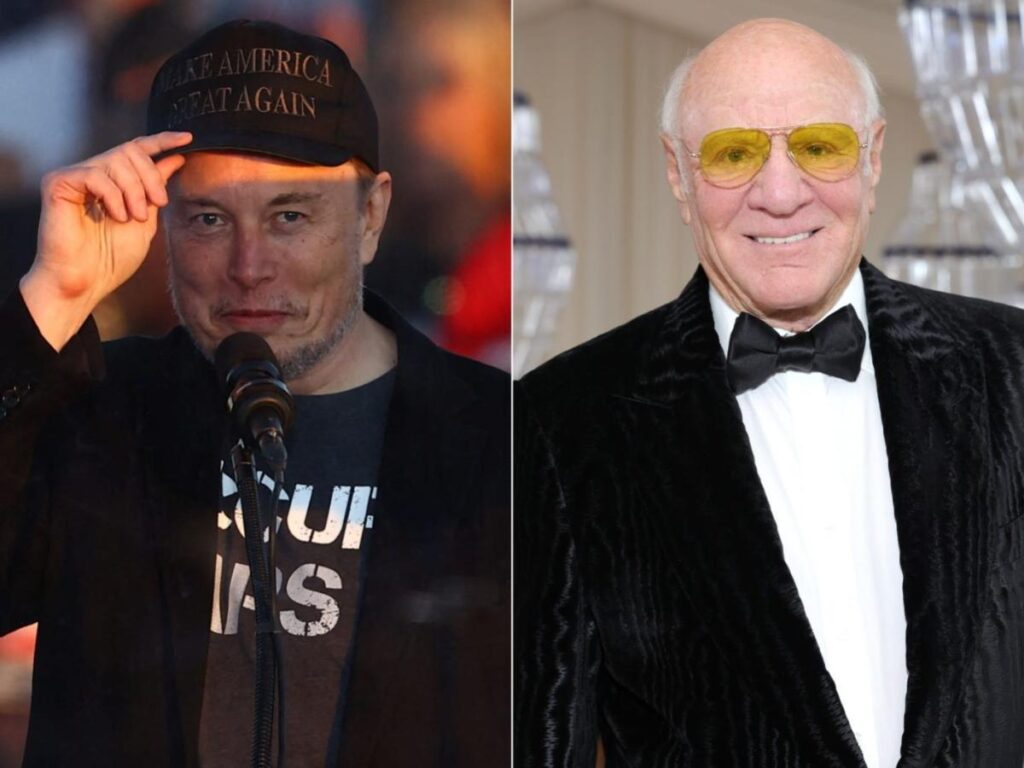Barry Diller recently shared his perspectives on Elon Musk’s political alignment and behavior during an appearance on Michael Wolff’s podcast, “Fire and Fury.” Diller suggested that Musk’s endorsement of Donald Trump could stem from feelings of “bitterness” and “rejection” by the Democratic administration. This assertion comes in light of Musk’s evolving political stance, where he shifted from being a supporter of Joe Biden to aligning with Republican ideals, particularly after expressing a view that Republicans, in some aspects, now reflect values of meritocracy and personal freedom that he once attributed to Democrats. Diller’s observations highlight the complexities of Musk’s motivations in the political arena, hinting at a blend of personal emotions and a desire for influence.
Elon Musk’s official endorsement of Trump followed the latter’s shooting incident during a rally in July 2023. This support extended to financial backing through the formation of a super PAC, America PAC, which has reportedly spent over $80 million in the electoral landscape. Diller’s commentary reflects a belief that Musk’s current political maneuvers are not merely strategic or ideological but also rooted in personal grievances toward the Democratic party. As Musk’s relationship with the Biden administration soured post-2021, his criticism of the Democrats has become more vocal, showcasing the evolution of his political identity.
Furthering his critique, Diller characterized Musk’s behavior as driven not by a pursuit of wealth—Musk being the world’s richest individual—but rather by “a form of megalomania.” Diller’s insights provide a lens through which to view Musk’s public persona and decision-making processes, suggesting that his actions may be propelled by a need for recognition and validation in the public domain. Diller’s remarks come from his vantage point as a successful businessman and major donor to the Democratic Party, allowing him to engage with Musk’s strategies critically while acknowledging his managerial prowess.
Despite acknowledging Musk’s intelligence and capabilities, Diller expressed concern over Musk’s controversial statements and actions that have alienated users and advertisers on X, formerly known as Twitter. He emphasized that Musk’s approach—especially his anti-advertising policies—has led to significant financial repercussions for the platform. Following controversial remarks, numerous high-profile advertisers, including Disney and Apple, chose to withdraw their ads, which contributed to a substantial decline in the platform’s revenue. Diller pointed out that Musk’s combative stance regarding advertisers—exemplified by his proclamation to departing advertisers at a key summit—has had a detrimental effect on X’s economic viability.
The financial standing of X has dramatically shifted since Musk’s acquisition in October 2022 for $44 billion, with more recent evaluations estimating its worth at less than $10 billion. Diller remarked on the peculiarity of Musk’s ownership, likening it to that of a “toy,” suggesting uncertainty about Musk’s long-term commitment to the platform. This unpredictable trajectory raises questions about the future of X and Musk’s involvement in shaping its direction amidst ongoing controversies.
In summary, Barry Diller’s insights on Elon Musk’s current political affiliations and operational strategies at X underscore a complex interweaving of personal and public motivations. Diller’s characterization of Musk reflects concerns regarding the impact of his political endorsement and controversial actions on the social media platform’s viability and user engagement. As Musk navigates this tumultuous landscape, the consequences of his decisions continue to unfold, influencing both his political identity and the financial health of X. The implications of these developments resonate beyond the tech and political spheres, inviting broader discussions about the intersection of influence, ideology, and responsibility in contemporary media landscapes.

